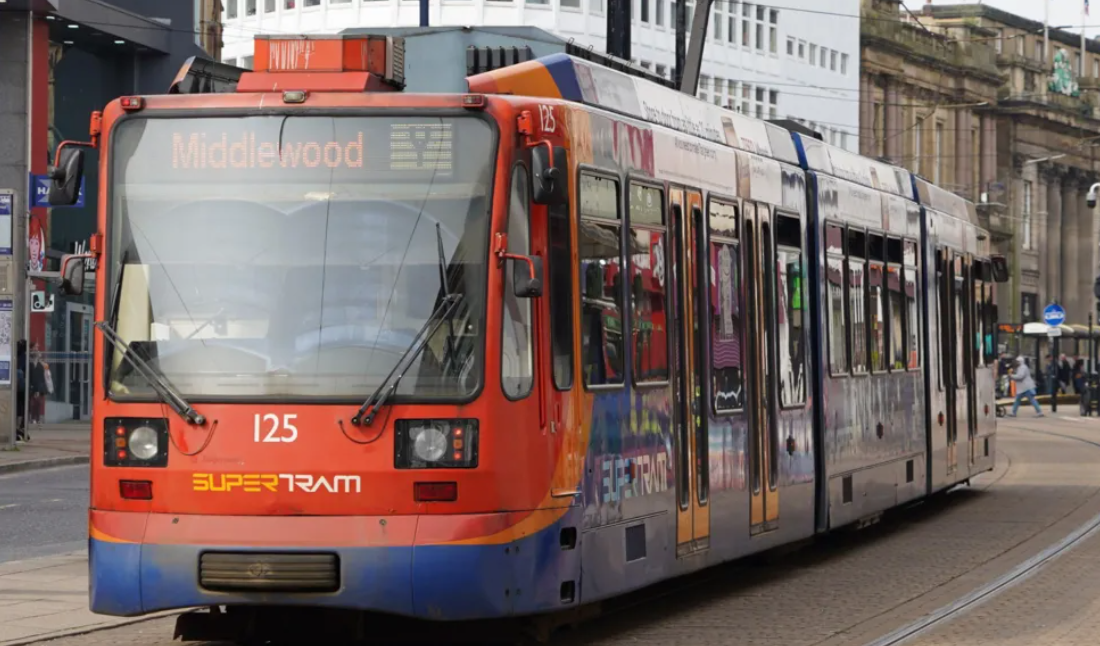Chancellor Rachel Reeves has announced billions of pounds in investment for transport infrastructure across England, focusing on tram, train, and bus projects in mayoral regions throughout the Midlands, the North, and the West Country. This announcement comes ahead of the government’s upcoming spending review, which will allocate funds to various Whitehall departments over the next three to four years.
Reeves has faced pressure from Labour MPs to increase spending amid ongoing concerns about economic challenges, particularly relating to disability and benefit cuts. The investment plan heavily emphasizes tram networks, with Greater Manchester receiving £2.5 billion to expand its tram lines to Stockport and add stops in Bury, Manchester, and Oldham. The West Midlands will get £2.4 billion to extend services from Birmingham city center to a new sports quarter.
Additional funding includes £2.1 billion to initiate the West Yorkshire Mass Transit program by 2028 and to build new bus stations in Bradford and Wakefield. Six other metro mayors will also benefit from transport investments:
-
South Yorkshire will get £1.5 billion to renew its tram network and bus services across Sheffield, Doncaster, and Rotherham by 2027.
-
Liverpool city region will receive £1.6 billion for faster connections to Liverpool John Lennon Airport, Everton stadium, and Anfield, plus a new bus fleet in St Helens and the Wirral.
-
The North East is allocated £1.8 billion to extend the Newcastle to Sunderland Metro via Washington.
-
West of England will get £800 million to enhance rail infrastructure, increase train frequency between the Brabazon industrial estate in Bristol and the city center, and develop mass transit linking Bristol, Bath, South Gloucestershire, and North Somerset.
-
Tees Valley will receive £1 billion, including a £60 million platform extension program for Middlesbrough station.
-
The East Midlands will be granted £2 billion to improve road, rail, and bus connections between Derby and Nottingham.
This transport investment marks Chancellor Reeves’ first significant departure from the Treasury’s Green Book guidelines, which have been criticized for favoring London and the southeast. Labour MP Jeevun Sandher, a Treasury Committee member, has previously highlighted a “hardwired London bias” in these rules. Reeves, speaking in Greater Manchester, noted that adherence to the Green Book had resulted in growth concentrated in limited areas, leaving many regions behind.
Revising these guidelines aims to channel more funds into the North and Midlands, including the “Red Wall” constituencies where Labour faces electoral challenges from Reform UK. Reeves is not the first chancellor to review these rules; former Prime Minister Rishi Sunak also examined the Green Book as part of the Conservative Levelling Up agenda. Sunak had announced some of the projects now being funded, including West Yorkshire’s mass transit program, which was intended to offset the cancellation of the HS2 rail line north of Birmingham.
Labour reviewed these projects upon taking office in July, arguing that they had been underfunded. Ben Houchen, Conservative Mayor of Tees Valley, said Labour’s delay caused a year’s postponement but expressed satisfaction that funding was now approved. North East Mayor Kim McGuinness described the £1.8 billion allocation as a “game changer,” while Liverpool City Region Mayor Steve Rotheram called the investment a “massive vote of confidence.”
However, shadow chancellor Mel Stride criticized Labour’s transport promises as lacking serious planning and accused them of making empty tax promises that cannot be fulfilled. Liberal Democrat Treasury spokeswoman Daisy Cooper urged Reeves to deliver on the promises, warning communities have heard similar commitments before but were left with unfulfilled projects. She emphasized the need for investment to also reduce fares amid the ongoing cost of living crisis.
When asked if funding would be allocated for a new rail link between Manchester and Liverpool, Reeves responded that more details would be announced in next week’s Spending Review.
Overall, the £15.6 billion regional transport funding will span five years from 2027/28 to 2031/32. A Treasury spokesperson confirmed that this would double the current spending from £1.14 billion in 2024-25 to £2.9 billion by 2029-30.













